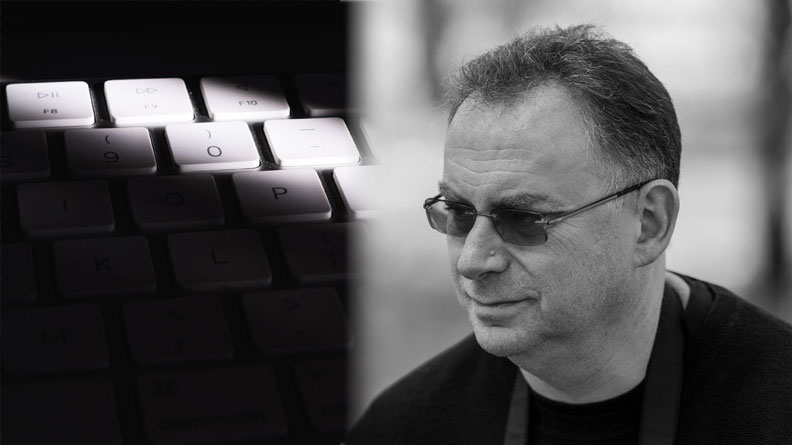Open Letter to the Rector of the University of Helsinki regarding the decision to suspend exchange agreements with Israeli universities
A letter by Paul Frosh, 22nd May 2024
Dear Professor Lindblom,
I am a Jewish Israeli academic and a core fellow for 2023-24 at the Helsinki Collegium for Advanced Studies (HCAS) at the University of Helsinki. In my opinion, the decision of the University of Helsinki to suspend exchange agreements with Israeli universities is unjust: it attributes blame to only one side in the conflict and directly punishes students and academics for the actions of their government. No less importantly, it betrays ongoing work towards conflict resolution and engagement with Palestinian and Jewish students at Israeli academic institutions such as the Hebrew University of Jerusalem.
Let me explain why with reference to my own background and experience.
In the four years prior to my fellowship in Helsinki (2019-23), I was Head of the Department of Communications and Journalism at the Hebrew University of Jerusalem. About 20% of the students in our department are Palestinians, a term which includes those who come from within the “green line” (the pre-1967 borders of Israel) and who define themselves variously as Palestinian, Palestinians with Israeli citizenship, or Israeli-Palestinian, as well as many students from East Jerusalem. Our faculty and department have instituted initiatives to foster their participation and success in our degree programmes (which are mainly conducted in Hebrew), including special courses in Arabic, and group and individual mentoring at undergraduate and graduate levels. Our students, notably but not only women, and notably but not only the first generation in their families to attend university, have successfully completed degrees and have – among other things – conducted groundbreaking studies of Palestinian social media use and activism (especially in East Jerusalem) and (usually highly critical) research on the experience of Palestinian students in Israeli academia. In one particular faculty-led research project, two Palestinian women and two Jewish women together analyze TikTok posts by Palestinians and Israeli Jews from the 2021 Gaza war, focusing on questions of critique and diversity of interpretation. They have continued to do this even during the current war.
I should add that many other departments at the Hebrew University of Jerusalem (see for instance the East Jerusalem Lab at the Truman Research Institute), and other universities in Israel, have implemented similar initiatives. Have such programmes created a utopia of diversity and harmonious academic (and social) exchange across the battle-lines? Of course not: we all recognize the very severe constraints, asymmetries, and near-insurmountable challenges of our geopolitical and existential situation. As I write this, classes are being held in which Palestinian students, with family and friends – including victims of the war – in Gaza and the West Bank, are sitting next to Jewish students who have family members held hostage in Gaza (or who were victims of October 7th), or who have just returned from fighting in Gaza. That they manage to do this without violence breaking out in the classroom is a testimony to them, and to the support systems the university and its staff have instituted. The walking wounded are everywhere on campus, even if you cannot easily see the wounds. But, despite the most appalling circumstances, our faculty and our programmes are creating life-transforming possibilities for Palestinian and Jewish students, fostering a generational cohort of graduates for leadership positions both within and beyond academia. These future leaders will be essential to guiding our broken, bleeding communities towards a just and lasting peace for Palestinians and Israelis.
So: this is the institution, and the people in it, who are now being punished with exclusion from the community of legitimate dialogue and exchange. Instead of earning solidarity and engagement for their extraordinarily challenging situation, and for their efforts to break the cycle of violence, students at Israeli universities – both Jewish and Palestinian – have been made into proxy targets for anger with the Israeli government.
To the best of my knowledge, the decision to exclude students at Israeli universities was made without prior discussion or clarification with your academic partners at the Hebrew University of Jerusalem. From my perspective, the University of Helsinki has chosen to look good rather than to do good and has failed to show the requisite concern and regard for academics working for justice and peace at the wounded heart of the war. As a result, the University of Helsinki risks making itself part of the problem instead of part of the solution to this horrific conflict.
Yours in the hope of a just and lasting peace for Israelis and Palestinians,
Prof. Paul Frosh
Core Fellow, Helsinki Collegium for Advanced Studies
Karl and Matilda Newhouse Chair in Communications
Department of Communication and Journalism
The Hebrew University of Jerusalem

